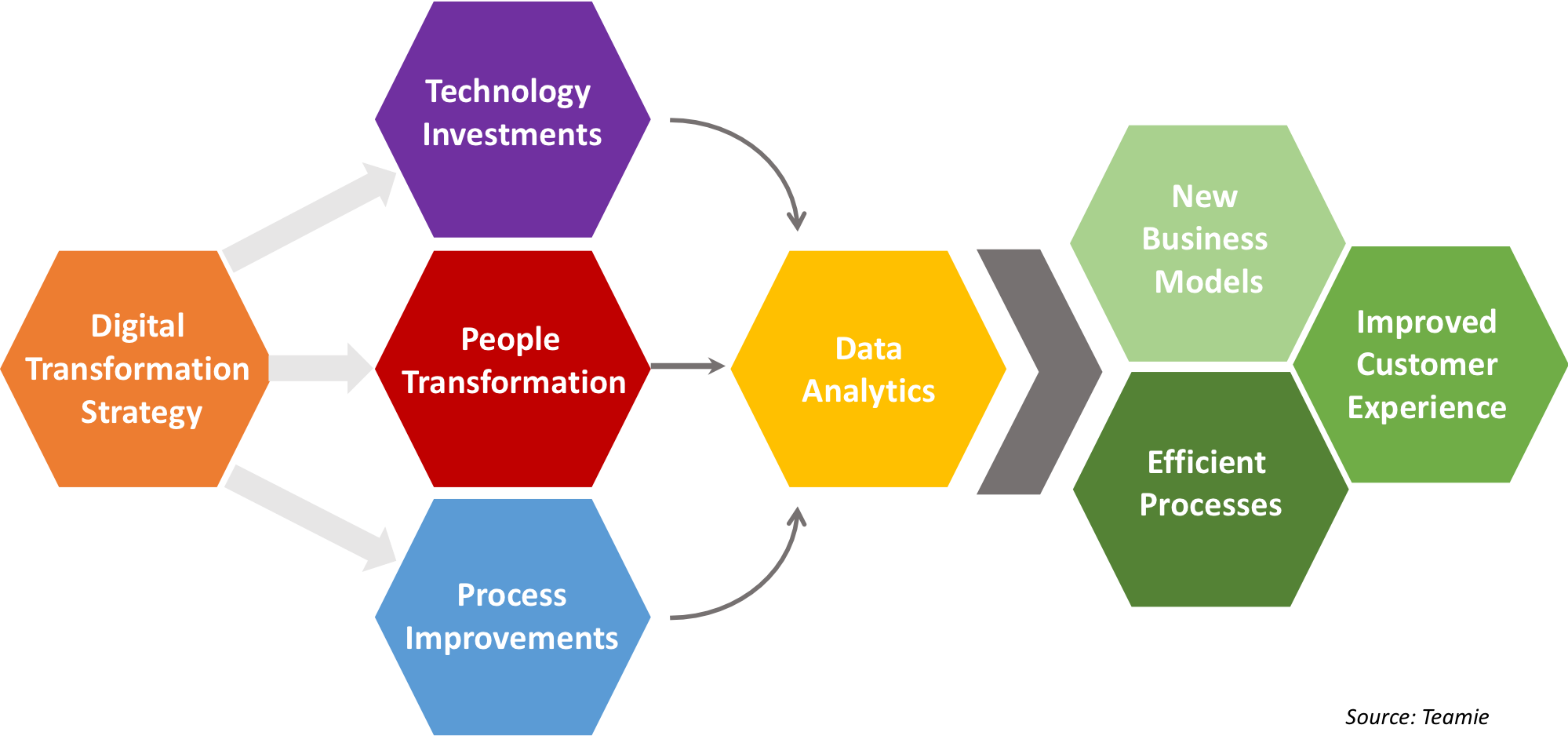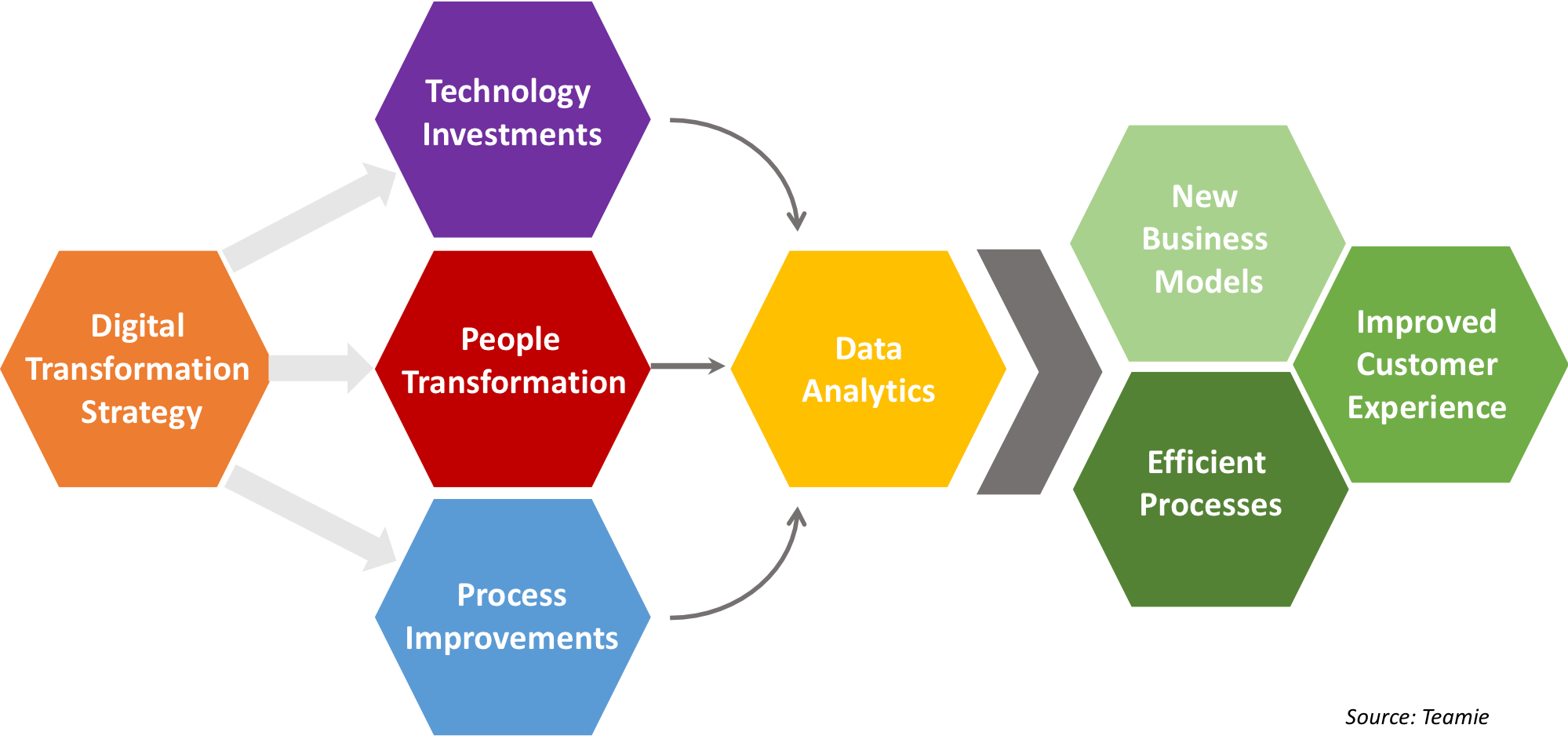A decade ago or even 5 years ago if someone told you that the L&D (Learning & Development) department can make the company more profitable or help generate new revenue streams, you’d be sure that the person you were talking to was either a very ambitious and optimistic L&D professional, or someone was sharing alternative facts. But the impact of digital on companies and industries today, is making this a real fact.
Digital technology destroys value
This counterintuitive suggestion from a McKinsey study argues that while digital technologies drive efficiencies & transform industries, it also leads to depleted corporate earnings and can reduce the total value of industries. In essence, while some companies that embrace digital technologies and transform their businesses successfully emerge as clear market winners, many others will suffer, and the winner at the end of the day will be consumers, and not companies or (traditional) industries.
IDC estimates that close to $2 trillion (yes, trillion) will be spent on Digital Transformation (DX, as abbreviated by IDC) projects by 2022. Companies will be investing about 10% of their revenues on digital technologies in a bid to transform themselves. While this $2 trillion figure includes investments in DX technologies such as IOT, Artificial Intelligence, etc., it does not include the investment needed in making the digital transformation actually happen.
People transformation makes Digital transformation happen
As many sales leaders will know, investing in CRM is easy, but getting your sales team to use the CRM tool is the real challenge
Companies are investing heavily on DX technologies to automate, predict or reimagine their business, however, all these technologies are meant to change if not disrupt the status quo of how operations, supply, distribution, logistics, sales or essentially the business is being run.
The change management needed to make the digital transformation happen is not trivial. Companies that will successfully manage the People transformation part of their Digital transformation projects, will be the ones that will reap the benefits of going digital and truly add value to themselves and the industry.
Learning for Digital
As we work with organisations who are using Teamie to train, up-skill and invest in their people, the core purpose of the training or L&D teams is to help the organisation be prepared with the skills and knowledge needed to make the companies successful. Digital is causing frantic changes within companies and industries.
The ensuing organisational chaos needs to be managed by creating a good framework and culture for organisational learning.
In our experience of working with companies undergoing such digital transformations, a typical framework puts People transformation at the heart of the digital transformation strategy.

Learning Framework for Digital Transformation
In order to successfully adapt to and adopt the new digital transformation technologies and the inherent accompanying changes, companies are embarking on a Learning Strategy that builds initiatives and programs around the 4 key areas mentioned below. The intention of this framework is to address key questions that help the employees and the organisation prepare for the changes that come with a digital transformation project.
- Awareness — Build learning programs and initiatives that drive awareness of the digital strategy, its impact on different roles & functions and importantly address the “what’s in it for me” proposition for this change.
- Learning Culture — As clichéd as it sounds, lifelong learning is a critical skill. Learning within an organisation needs to be ongoing initiative, instead of one-off workshops. Enabling employees to access learning just-in-time will be critical as companies change at a rapid pace. Building active communities of learning becomes as, if not more, important than planning the training calendar. Extrinsic motivators like gamification elements in learning will act as catalysts to help drive the behaviour needed to shift the culture.
- Leadership — Digital transformation will also change organisational structures, creating new revenue streams, merging existing operations and defining new workflows and operating structures. New leaders will emerge, and all leaders (new and existing) will have to be prepared for the changes. The challenge of managing a changing business, as well as a workforce who will have varying levels of digital and skill readiness will need to be addressed. Training the leadership team will be a critical aspect of the digital transformation project.
- New Skills — The rate of change of digital is mind boggling, and the skills needed to operate in this new world requires everyone to learn new skills and sometimes unlearn old ones. This is going to be a mammoth task for employees and organisations, and hence the need to keep the employees abreast of the impact of digital to the business and their jobs, and proactively getting the team ready with the new skills becomes imperative.
Digital transformation of companies and industries will happen, but not without people transformation happening in parallel. Learning & Digital needs to happen at the same time for companies to successfully transform themselves for the new economy and the future of work. These companies will need to have Learning & Digital at the core of their transformation projects.
Planning to roll out LMS to enhance learning pedagogy?
Download this white paper that includes 24 Best Practices for implementing an LMS.



Leave a Reply